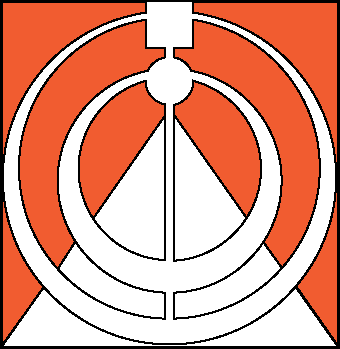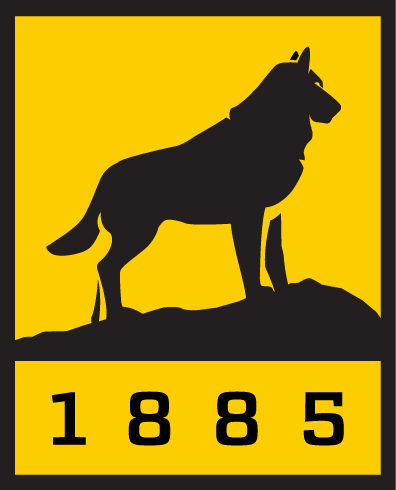Mi-STAR at the 2020 MSTA Conference: Hear from the Experts, Learn the Latest
Friday, February 14, 2020
A wide variety of presentations by Mi-STAR staff and teachers will be featured at the 2020 Michigan Science Teachers Association Conference, set for March 6-7 in Lansing. Whether you are a Mi-STAR veteran or new to the curriculum, the sessions will give you exciting, new tools to take back to your classroom, plus updated information on accessing and implementing Mi-STAR. Mi-STAR will also be staffing a booth in the conference exhibit hall, and representatives will be available to provide information and answer your questions.
If you are considering adopting Mi-STAR in your district, your timing has never been better. The entire three-year curriculum, for grades 6–8, will be ready for the classroom in fall 2020.
The 2020 Mi-STAR sessions include the following:
Friday, March 6
8–8:45 a.m.
Mi-STAR Information Session: What's New for 2020?
Doug Oppliger, Curriculum Development Associate, and Stephanie Tubman, Mi-STAR Coordinator of Curriculum Development and Implementation
Whether you are a Mi-STAR veteran or a beginner ready to tackle this exciting new NGSS curriculum, this session is for you. Mi-STAR staff will review everything your school or district needs to know to start or continue with Mi-STAR next school year. Join our staff and experienced teachers for an interactive session to learn how to access the program in 2020 and preview new units and materials coming up in 2020.
9–9:45 a.m.
By Design: The Mi-STAR Method for Developing NGSS-Aligned Assessments
Barbara McIntyre, Assessment Development and Professional Learning Associate; and Chris Wojick, PhD, Mi-STAR Project Director
3D or not 3D? That is the question! Whether you want a better grasp of Mi-STAR assessment design or plan to develop or modify your own assessment tools, this session will set you on the right track. To deepen our understanding, we will explore the nature of NGSS-aligned assessment and the Mi-STAR assessment development process using Achieve’s non-negotiable criteria to evaluate Mi-STAR assessment tools.
9-10:45 a.m.
Using Criteria, Constraints, and a Decision Matrix to Make Curriculum Decisions
Chris Geerer and Alex Gulyas, Grosse Pointe Public Schools
Is your district evaluating curriculum programs and struggling to decide which to choose? How do you make a decision that everyone can agree on? Bring a team and learn how to brainstorm and define criteria and constraints, rank your criteria, and then use a decision matrix to mathematically arrive at a recommended solution for your curriculum choice. Double bonus: Your staff learns techniques for implementing NGSS engineering PEs in the process!
10–11:45 a.m.
Mi-STAR’s Assessment Tools for NGSS: How to Make Them Work for You
Barbara McIntyre, Assessment Development and Professional Learning Associate; and Ashley Poole, Kalamazoo Public Schools
Learn how to put NGSS assessment vision into practice in your classroom using Mi-STAR pre/post-tests and embedded assessments. This session will show you how to evaluate student proficiency in relation to NGSS performance expectations, prepare students for high-stakes testing, get in-depth information about students’ knowledge, skills, and abilities, and minimize the time spent scoring and grading student work. Discover practical tips and tricks to make Mi-STAR 3-D assessment work for you.
1–2:45 p.m.
Mi-STAR Share-a-thon: NGSS Tips, Tricks, and Tools for the Classroom
Luke Bowman, PhD, Curriculum Development Associate; Megan Birdwell, St. Charles Community Schools; and Stepanie Tubman, Mi-STAR Coordinator of Curriculum Development and Implementation
Come to the Share-a-thon to explore the nuts and bolts of NGSS pedagogy with other teachers. Multiple teachers will share their strategies on student talk and group work, nurturing student questions, making student thinking visible, and much more. The session will kick off with short introductions, followed by open time for attendees to talk with the Mi-STAR veterans and explore their resources. Discover practical tips to take back to your NGSS classroom. Handouts will be provided.
3–4:45 p.m.
Student-Generated Questions to Lead Investigations: Students “Driving the Bus”
Emily Gochis, Regional Director, Western U.P. MiSTEM Network; Jennifer Pera, Jeffers High School; and Kim Smith, STEM Education Consultant, Seaborg Math and Science Center, Northern Michigan University
Are you tired of asking all of the questions? Empower your students to ask good questions using the Question Formulation Technique. Learn how to get students to ask clarifying questions about data sets to increase their understanding. These techniques from the Mi-STAR curriculum will motivate students to engage deeply and take ownership of their learning. No prior Mi-STAR experience is necessary. Walk away with cross-disciplinary strategies to implement in your classroom.
Saturday, March 7
8–8:45 a.m.
Tips and Tricks for Mi-STAR Labs
Dawn Kahler, Kalamazoo Public Schools, and Megan Doorlag, Kalamazoo Public Schools
Work with MiSTAR experienced educators to set up and run labs that may seem challenging. The two facilitators would be happy to share their tips and tricks.
10–11:45 a.m.
Help Your Students Be Better at Science, Life, and CERs through Sound Reasoning
Tony Matthys, PhD, Mi-STAR Curriculum Development Associate; Lori Hall, Saginaw Public Schools; and Brian Danoff, Mi-STAR Curriculum Development Assistant
The Claim, Evidence, Reasoning Framework is at the heart of science; sound reasoning is required to argue from evidence, construct explanations, and even to plan investigations. Yet, reasoning is hard, and many students struggle to reason effectively. This session introduces Mi-STAR’s pilot-tested lesson that helps students use reasoning to argue from evidence. We will practice identifying and constructing sound reasoning statements to strengthen CERs that argue a position. Then, after mastering the basics, we will expand our newfound reasoning skills into other science practices. A classroom-tested lesson plan is provided.
11–11:45 a.m.
Modeling With Mi-STAR
Jenne Bush, Newaygo Public Schools; and Andrea Williams, West Bloomfield School District
Are you teaching the MiSTAR curriculum and want to implement modeling strategies but don't know where to start? This session is for you! This session is designed as an immersion model where Mi-STAR practitioners use the same techniques and materials they will utilize with their students but with a modeling twist. Participants will rotate through roles of student and instructor as they practice and engage in guided inquiry and cooperative learning. Strategies for raising the level of discourse during classroom discussions and whiteboarding techniques will be emphasized.
Noon-12:45 p.m.
Integrating Whiteboarding into Mi-STAR and Interactions
Darci Merrilat and Allison VanDriessche, Bay City Public Schools
Learn new ideas and instructional strategies for incorporating whiteboarding into the Mi-STAR and Interactions curricula. Lessons from each resource will be used to demonstrate collaboration and productive talk through the use of the whiteboards in creating, evaluating and discussing models.
Noon-12:45 p.m.
Mi-STAR for Newbies
Yonee Bryant-Kuiphoff, Kalamazoo Public Schools; Amanda Dine, Godwin Heights Public Schools; and Stephanie Tubman, Mi-STAR Coordinator of Curriculum Development and Implementation
Implementing a Mi-STAR unit can feel like you are building an aircraft—while it's in flight. Let us help you use and understand the tools: Bubble Maps, UST, UCQ, GHC, Anchor, Uncover, Share, Connect, CYP and whiteboarding, and learn how they all work together to help your students become 21st century thinkers and problem solvers.
1-2:45 p.m.
Computer Science in Mi-STAR
Lindsey Watch, Curriculum Development Assistant: and Chuck Palosaari, Adams Township Schools
To comply with the new Michigan K-12 Computer Science Standards, many educators are looking for resources to help them integrate computer science into their existing science curricula. This session introduces some of Mi-STAR’s CS-integrated lessons and reviews how they support the Michigan K-12 Computer Science Standards, as well as the Michigan Science Standards, and enhance student engagement in science and engineering.
GET Mi-STAR NEWS BY E-MAIL!
Copyright © 2026 Mi-STAR
Mi-STAR was founded in 2015 through generous support provided by the Herbert H. and Grace A. Dow Foundation. Mi-STAR has also received substantial support from the National Science Foundation, the MiSTEM Advisory Council through the Michigan Department of Education, and Michigan Technological University.


















